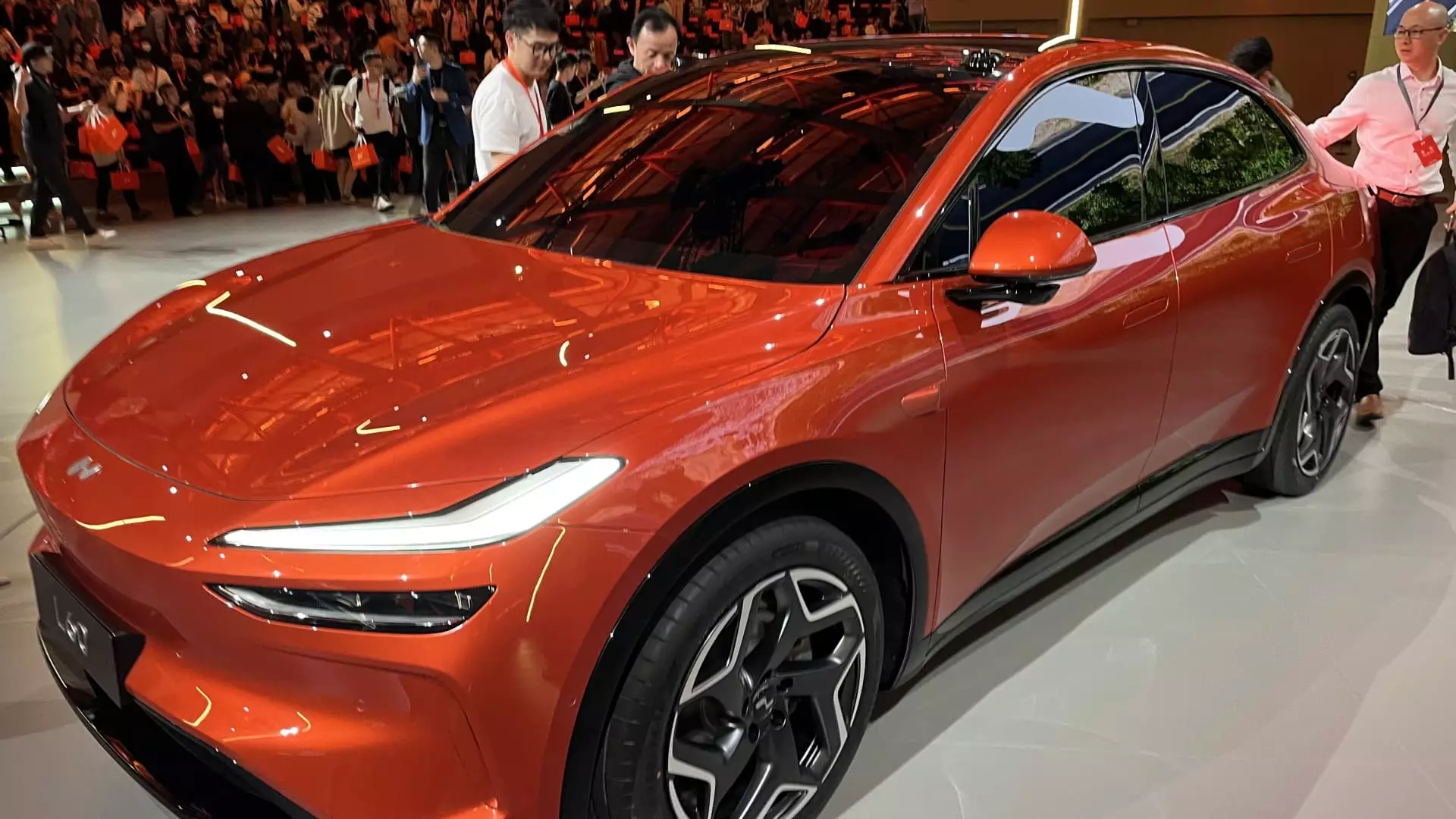In the ever-evolving landscape of electric vehicles (EVs), Chinese manufacturers are increasingly stepping up to challenge established players like Tesla. A testament to this trend is the recent introduction of the Onvo brand, a more affordable line launched by the premium EV company Nio. The Onvo L60 SUV, the inaugural model, is set to debut in a pricing arena that could heavily disrupt the competitive dynamics within the EV market. Starting at a tantalizingly low price of 149,900 Chinese yuan (approximately $21,210), this vehicle is positioned to attract consumers who may have previously deemed EV ownership too expensive.
The Onvo L60 represents a strategic move by Nio to capture market share in a sector that has seen a steady increase in demand but has also been grappling with high sticker prices. The low entry point is made possible through an innovative battery subscription service, which allows consumers to “rent” their battery for as low as 599 yuan per month. This model not only reduces the upfront cost for buyers but also aligns with the growing trend of subscription-based services across various industries, further making EV ownership more accessible.
When examining the broader EV landscape in China, the Onvo L60 stands out not only for its price competitiveness but also for its strategic implications. Nio’s initial price point for the L60 at 219,900 yuan was intended to position it against Tesla’s Model Y, which retails at approximately 249,900 yuan. This pricing strategy exemplifies a calculated approach to leverage the growing price sensitivity among consumers, especially in the wake of rising costs of living.
Furthermore, other competitors such as Geely-backed Zeekr, which will launch its Zeekr 7X starting at 239,900 yuan, demonstrate the competitive nature of the market. Xpeng’s recent unveiling of its mass-market Mona brand, with the M03 coupe starting at just 119,800 yuan, indicates a race toward affordability that could force established brands to reevaluate their pricing structures. Tesla’s Model 3, despite its recent price cut to 231,900 yuan, may find itself increasingly challenged by these emerging competitors.
As these Chinese electric vehicle manufacturers aim for international expansion, they face significant hurdles, particularly in Europe. With the European Union’s impending tariff increases on imported Chinese-made EVs looming on the horizon, achieving profitability in this critical market has become more complex and costly. Nio’s cooperation with the EU in its investigations about subsidies highlights the delicate balance between growth aspirations and regulatory compliance.
Nio CEO William Li’s acknowledgment of these tariffs during a recent earnings call points to a shift in strategy. Rather than aggressively expanding into new European markets, Nio appears to be focusing on consolidating its presence in the five markets where it has already established operations, while patiently building its brand reputation. The plan to open a Nio house in Amsterdam and the continued installation of battery swap stations signify a commitment to long-term growth in Europe, despite the challenging regulatory environment.
The Future of Onvo and Its Ambitions
Looking ahead, the Onvo brand is poised for ambitious growth, with anticipations of reaching 10,000 monthly deliveries by December, and an optimistic projection of 20,000 deliveries per month in the following year. With plans to open over 200 stores in China by the end of the year, Onvo is not merely entering the market; it’s rapidly expanding its footprint. The introduction of Firefly, a subsequent lower-priced brand, further demonstrates Nio’s dedication to catering to a broader audience and its strategy of penetrating various market segments.
The expected 15% profit margin on Onvo vehicles hints at a business model that is not just about volume, but also sustainability. By reducing initial costs and leveraging subscription services, Onvo could redefine consumer expectations and broaden the appeal of electric vehicles in a price-sensitive market.
As Onvo launches the L60 SUV amid a fiercely competitive environment and significant export challenges, it stands at the forefront of a significant shift in the automotive industry. By focusing on affordability and strategic market engagement, it aims not only to compete but to potentially redefine the dynamics of electric vehicle ownership in China and beyond. As pioneers like Nio forge ahead, the automotive industry will watch closely to see if these moves can establish a new standard in consumer preference for electric mobility.

